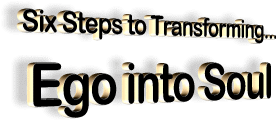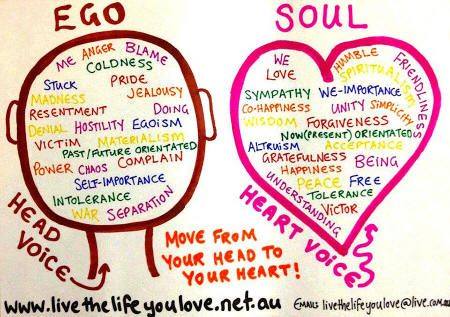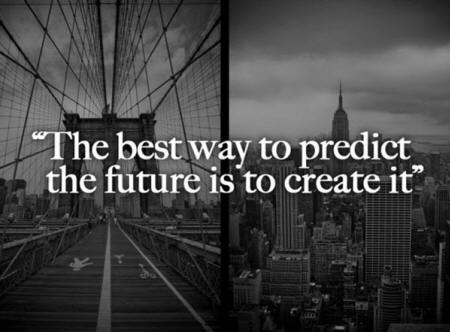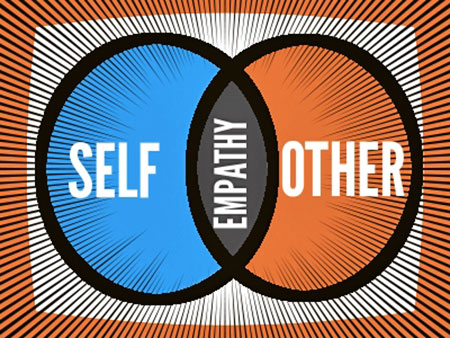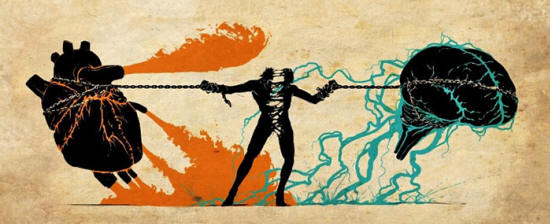|
July 27, 2014 from FractalEnlightenment Website
This is because we are all victims of an egocentric society, and hence victims of our own ego-attachment to such perspectives. I've written about transforming wounds into wisdom and victims into warriors.
This article will analyze tactics for transforming
Ego into Soul; to go from a state of instability to a state
of impeccability.
It will spread into your work and into your life. There are no limits. There are only plateaus, and you must not stay there, you must go beyond them." Bruce Lee
When I walk two steps, the goal moves two steps further into the horizon. What is the goal for? It's a reminder to keep moving, to keep going. Don't stop because the goal is constantly moving further and further away.
Indeed, the journey truly is the thing. Keep stretching your comfort zone until it becomes the world, then keep stretching it until it becomes the universe, and then keep going. Never stop.
Like Sarah Lewis wrote in The Rise,
is the illusion of permanence."
Woody Allen
When we subsume nature we realize that we are nature. We realize that we are constantly changing along with nature. The only healthy response to an every-changing system is to be open to change.
We do so by exhausting the primitive both within and
outside us so as to shatter any and all illusions of tradition or
permanence.
To which I retort:
Our civilization controls the world up to a point at which it seems to be destroying it. And so we have become the antithesis of man as human animal (ego), whereas nature-based man is the apotheosis (soul).
Like Jung fabulously articulated,
"Let go of certainty. The opposite isn't uncertainty. It's openness, curiosity and a willingness to embrace paradox, rather than choose up sides. The ultimate challenge is to accept ourselves exactly as we are, but never stop trying to learn and grow."
Tony Schwartz
Always leave room for doubt, especially in such areas as religion, nationalism, sexuality and racism.
The soul flies when the ego dies. It is from the blood and guts of the ego that the soul gets its fuel for flight. Like the blood and guts of the caterpillar must be annihilated in order to transform into the butterfly, so too must our egos be annihilated.
Like Philip Guston wrote,
Remember: God interrogating itself to the limit is you; you interrogating yourself to the limit is God.
Like Gerry Spence said,
is the day you win the race." Bob Marley
When it comes to advice about life, my attitude is very simple:
There is transcendence in letting go of transcendence.
The daily rat race of chasing money for the sake of money has us all going through the motions of chasing each other's tails through an indecipherable maze of one-upmanship.
Let it go! Live your life. Don't let life live you.
The status quo is the Ego's prison. But the bars are an illusion.
It's up to you to realize that fact and free yourself, and then act as an example for others through your sublime reputation.
Then again…
"The demon that you can swallow gives you its power, and the greater life's pain, the greater life's reply."
Friedrich Nietzsche
Create at least one monster. Life is full of shoulds and shouldnots.
It's also full of should-a, would-a, could-a. One way to decalcify the ego, and thus magnify the soul, is by creating our own art: the kind of art that rejuvenates the spirit and is cathartic for the ego.
Art is less about what you have not done and more about what you have done. The demon to be created and then consumed is the transformation of what we have not done into something we have done. This usually takes the form of art.
Like Bertolt Brecht said,
This seems contradictory to #4 but this is only because art is contradictory.
Objectively, art is alive in a way forbidden natural objects and, subjectively, in a way subsuming the subjects who create them. We humans are a fallible species. More so we are an excruciatingly complex and insecure species. Art is the cathartic process of our self-actualized inadequacies.
Through our own creative expression we, in one fell swoop, free our demons and give them wings.
Like Scott Adams wrote,
So create at least one monster. Scare people with it. Shake them out of their too-comfortable comfort zones. Have the courage of the artist. Her courage is the ability to swallow the status quo and create new forms of perceiving.
Like Bansky brilliantly tagged:
"Just as one candle lights another and can light thousands of other candles, so one heart illuminates another and can illuminate thousands of other hearts." Leo Tolstoy
Try your best to "walk a mile in their shoes" or "stand on the shoulders of giants."
If you can consistently do this, then your wisdom will become a force to be reckoned with. The reason is because of the interconnectedness of all things, cosmically, and our need for empathy, socially. We need each other. Our insecurity alone reveals that absolute fact.
Empathy shrinks or expands in proportion to one's vulnerability.
Being vulnerable is constantly being in a state to
receive new information without fear that it will change us; because
it will change us. And that's okay.
|

